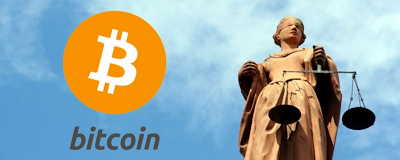
Switzerland Bitcoin Regulation might arrive next year.
Recently its national railway service “have jumped on the bitcoin bandwagon”, as explained by Coindesk, so now it’s time for Switzerland to start regulating fintech and digital currency.
A few days after the Swiss railway-related announcement, as SBB decided to sell bitcoin through its network of ticket kiosks – the Federal Department of Finance (FDF) announced its plans to regulate fintech with the goal of introducing a new regulation next year.
Key elements include plans for a new kind of license geared specifically toward fintech companies and a so-called regulatory “sandbox” for experimental firms. Under the proposed regime, the Financial Market Supervisory Authority would become the primary regulator of fintech firms working in Switzerland.
In a press release, the FDF explained that it will guide more researches about bitcoin and other digital currencies and it will study the distributed ledger broader applications .
The company explained:
“The FDF should conduct additional clarifications in cooperation with the interested authorities on reducing further barriers to market entry for fintech firms, also those outside financial market law (e.g. legal treatment of virtual currencies and assets).”
During a recent speech, Ueli Maurer, Swiss Finance Minister, commented that the proposed Switzerland Bitcoin regulation would help to attract more brands – even if the nation positive attitude has already attracted the attention of several blockchain-related startups to make their home in the country.
“We assume that with the steps we have prepared and the commitment we have to the overall financial services industry we can provide a solution that puts us among the top (countries) in the world that regulate this,” he explained.
Read more here about the Switzerland involvement in the fintech sector.

Open your free digital wallet here to store your cryptocurrencies in a safe place.
Open your free digital wallet here to store your cryptocurrencies in a safe place.

Open your free digital wallet here to store your cryptocurrencies in a safe place.
About the author: Amelia Tomasicchio is a writer and a journalist of Bitcoin-related news and articles. She started writing about Bitcoin in 2014 and she graduated in Rome with an essay about movie industry related to Bitcoin.
Open your free digital wallet here to store your cryptocurrencies in a safe place.

In fact, a few days ago Europol concluded that there is no connection between Bitcoin and terrorism: “Despite third party reporting suggesting the use of anonymous currencies like Bitcoin by terrorists to finance their activities, this has not been confirmed by law enforcement”, said Europol.“Virtual currencies and their underlying technologies can provide faster and cheaper financial services, and can become a powerful tool for deepening financial inclusion in the developing world,” said IMF Managing Director Christine Lagarde, who presented IMF paper at the World Economic Forum, in Davos, during the panel Transformation of Finance.
A conclusion of the report is that virtual currencies fall short of the legal concept of currency or money. While acknowledging that there is no generally accepted legal definition of currency or money, the authors note that both are associated with the power of the state to issue currency and regulate the monetary system.
Open your free digital wallet here to store your cryptocurrencies in a safe place.

 Australian authorities are looking into the bank account closures of several Bitcoin companies over the last few years. Specifically, the investigation is looking at anti-competitive behavior. Over the last year, bank actions have increasingly embraced blockchain technology instead of shunning it in the form of bank account closures. Though this type of account closure, for simply being associated with Bitcoin, is a common occurence in the United States, China, and some European countries as well, the Australian authorities are the first to look into at scale – a harrowing victory for those using blockchain technology. The Australia Competition and Consumer Commission (ACCC) chairman, Rod Sims, told the Australian Financial Review:”We are asking the banks why they acted as they did and what contact there was between them.“If ground reports from major Bitcoin companies such as BTC-e and OKCoin, that lost their accounts at the National Australia Bank, are to be believed, the contact was sparse and uninformative. Sims confirmed that the investigation had been ongoing for some time. Australian Senator Matthew Canavan also commented on the investigation:
Australian authorities are looking into the bank account closures of several Bitcoin companies over the last few years. Specifically, the investigation is looking at anti-competitive behavior. Over the last year, bank actions have increasingly embraced blockchain technology instead of shunning it in the form of bank account closures. Though this type of account closure, for simply being associated with Bitcoin, is a common occurence in the United States, China, and some European countries as well, the Australian authorities are the first to look into at scale – a harrowing victory for those using blockchain technology. The Australia Competition and Consumer Commission (ACCC) chairman, Rod Sims, told the Australian Financial Review:”We are asking the banks why they acted as they did and what contact there was between them.“If ground reports from major Bitcoin companies such as BTC-e and OKCoin, that lost their accounts at the National Australia Bank, are to be believed, the contact was sparse and uninformative. Sims confirmed that the investigation had been ongoing for some time. Australian Senator Matthew Canavan also commented on the investigation:
“We have strong laws against one business obstructing another business competing against it. These laws are even tougher for those companies that have the privileged position of a significant market share. Our banks wield great influence in the market and they have a great responsibility under our laws to not misuse that position. I am not sure if that has happened in this instance but there is no doubt that digital currencies do pose a threat to business of banks.”
Australian Senate that Might Actually Understand Bitcoin and its Promise
A Labor Party Senator, Sam Dastyari, was not surprised to hear about the ACCC investigation. He had previously chaired the Senate investigation into digital currencies. At this time, banks such as the National Australia Bank and other similarly sized institutions around the world are delving into blockchain technology. If anything, this is a clear indication that the swift actions of last year, where both domestic and international Bitcoin companies lost their accounts at Australian banks, were anti-competitive in spirit. Even without the emerging facts regarding bank’s research, investment, and involvement with blockchain projects, the majority of domestic companies brought down by Australian bank action were providing services that were in essence competing with banks.Australia has a large immigrant population from South East Asia that sends remittances back home. Some of the largest Bitcoin remittance companies are based in South East Asia in countries like the Phillipines or India. In Indonesia, Bitcoin is buyable at any of ten thousand plus IndoMaret stores. Australia now seems aptly prepared to benefit from the coming Bitcoin technology boom (bubble as called by some). Once the investigation is over, and banks are 100% clear on what not to do to Bitcoin companies, expect to see more Bitcoin companies return to Australia.
Open your free digital wallet here to store your cryptocurrencies in a safe place.

Open your free digital wallet here to store your cryptocurrencies in a safe place.
About the author: Caleb Chen is a cryptocurrency advocate and is a research assistant at the Chamber of Digital Commerce.
Open your free digital wallet here to store your cryptocurrencies in a safe place.

Open your free digital wallet here to store your cryptocurrencies in a safe place.
Open your free digital wallet here to store your cryptocurrencies in a safe place.